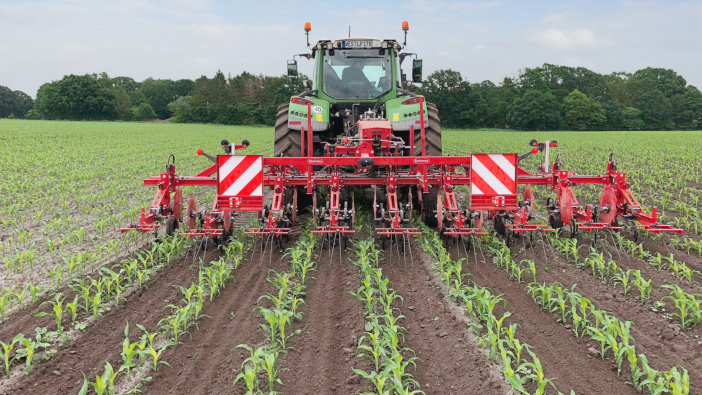To complement the DeltaRow system on Lemken’s Azurit precision seed drill, which sows maize seeds in twin rows to maximise space and nutrient availability, Steketee, part of the Lemken Group, has been testing its EC-Weeder to measure the efficacy of mechanical weeding.
The test was part of a master’s thesis supervised by Prof. Dr Bodo Mistele and Prof. Dr Verena Haberlah-Korr at the University of Applied Sciences of South Westphalia. During the trial, the EC-Weeder was fitted with finger hoes and harrows, as well as ridging shares to complete the pass.
Reportedly, the harrow proved to be particularly effective for controlling weeds in the early growth stages; ripping them out and burying the residues. The machine offered good control from weed emergence all the way through to the cotyledon leaf stage and the maize plants withstood the mechanical load, even at the three-leaf stage, resulting in low crops losses.
Compared to the finger hoe, the harrow was also able to work on the section between the twin rows for more complete control.
Ridging around the maize plants proved to be an effective step to tackle larger weeds up to the five- and six-leaf stage. Depending on factors such as operating speed, share width and condition of the soil, the tests showed efficiencies of 85% and above.
In conclusion, the trials showed that when equipped with the right tools, the Steketee EC-Weeder can be effective in maize, even when the DeltaRow sowing system is used. The smart camera system can provide control at all growth stages as it can be used in twin row or single row modes. Conventional farms may also be able to combine hoeing between rows with band spraying in the rows.


